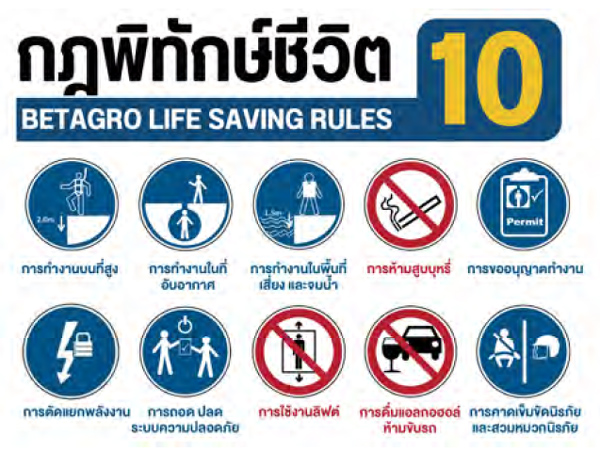Climate Change Management:
Betagro prioritizes climate change management and takes responsibility for minimizing its impact on communities, society, and the planet. We have implemented proactive measures – such as the use of renewable energy, resource efficiency, and advanced technologies – with the ultimate goal of achieving net-zero greenhouse gas emissions by 2050. This reflects our commitment to a sustainable transition toward a low-carbon future.
Sustainable Packaging Management:
Betagro is committed to sustainability and reducing environmental impacts globally. We place a strong emphasis on sustainable packaging management, focusing on both design and safety. Our commitment aims to optimize resource use in packaging production while minimizing waste – particularly plastic waste, which remains a significant global environmental challenge. We have established clear goals and business practices for sustainable packaging, aligned with the principles of the circular economy to support long-term sustainable development.
Waste Management:
Waste management has become a major global challenge, particularly in controlling both the volume of waste and the methods of its disposal. At Betagro, we have implemented comprehensive waste management measures, including reducing waste per unit of product and lowering the waste disposal rate. We have also begun incorporating circular economy principles into our business practices, reflecting a growing commitment to resource efficiency and sustainable production.
Water Management:
Efficient water management plays a crucial role in the integrated food business. At Betagro, we are committed to reducing water consumption and improving water use efficiency across our operations. Our approach includes setting clear water usage targets, conducting risk assessments in water-stressed areas, and continuously monitoring water consumption to ensure the sustainable and responsible use of this vital resource.
Environmental Stewardship:
We place strong emphasis on environmental management alongside our production processes and are committed to minimizing environmental and community impacts, with the goal of achieving 100% eco-friendly packaging.

Occupational Health and Safety

We are fully committed to achieving zero incidents by 2026 through the implementation of comprehensive safety measures. These include the 10 Betagro Life Saving Rules, proactive risk identification for incident prevention, and the adoption of Process Safety Management—all of which contribute to the development of the Betagro Safety Framework.
Betagro’s five sustainability strategies are designed not only to drive strong and sustainable growth, but also to enhance the competitiveness of Thailand’s food industry. Through these strategies, we are shaping a sustainable future across all dimensions—economic, social, and environmental—while reinforcing our leadership as an integrated food company committed to enriching people’s lives with Better Food.
